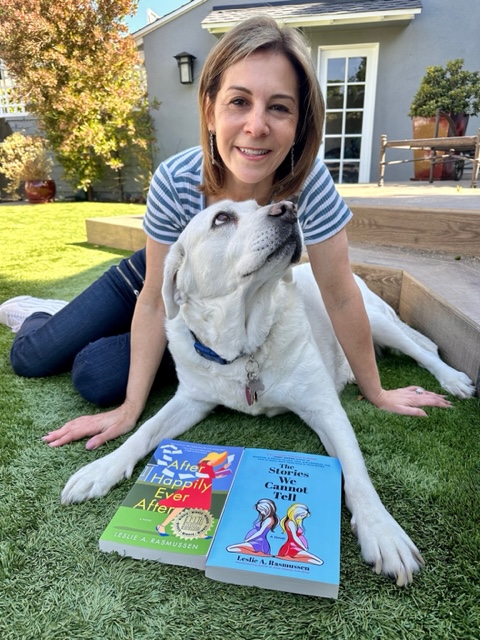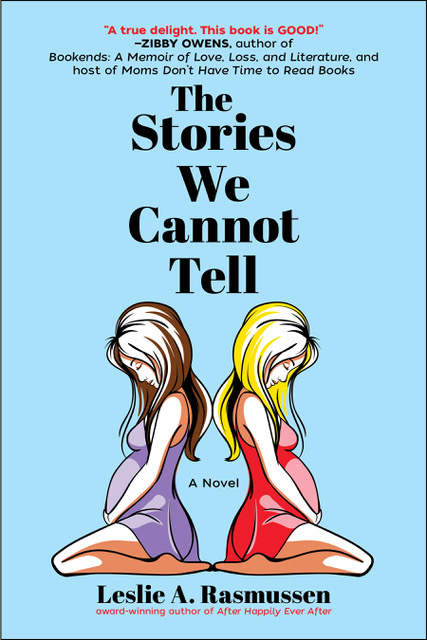

How long have you been writing or when did you start?
I’d written short stories, journal entries and humorous letters from camp during my childhood, but I didn’t consider pursuing a career in writing until I graduated college. At that point I had a job on a television studio lot working as an assistant to the executive producer of a popular drama. Being on the lot I made friends with many people who were writing sitcoms. I thought it looked like fun to write and I enjoyed sitcoms more than dramas. I began writing spec scripts and showing them to other writers and eventually a writer took me under her wing and helped me get my first agent, and my first episode of a tv show. I wrote tv sitcoms for years, then left to have my children. While my children were growing up, I wrote personal essays and eventually had over twenty of them published on Huffington Post. From there I decided to write novels, and now I have my second novel coming out in July.
Does writing energize or exhaust you? Or both?
I would have to say a little of both, but mostly that writing energizes me. I don’t have a brain for science or math, but I do have a creative brain. When I’m writing I lose myself in the plot and the characters and that fulfills me. I love once I’m past the outline stage and into the actual book because that’s when my characters come alive, and I live through them. When I’m finished for the day, I am tired, but it’s a good kind of tired.
What books did you grow up reading?
I grew up on Judy Blume, in fact I read every single one of her books, and then kept buying them when she started writing for adults. Judy Blume wrote about so many issues that kids face, which are still applicable today. When I became an author, I wanted to write about issues women face, and I know Judy’s books inspired me to do that. I also read a lot of “Harriet the Spy,” but my favorite book of all time is “From The Mixed Up Files of Mrs. Basil E. Frankweiler.” I must’ve read that book ten times. I couldn’t get enough of the story. I was also a big fan of “The Outsiders” and the Nancy Drew Mysteries.
What do you think is the best way to improve writing skills?
To me the best way to improve your writing skills is to write anything. Whether it’s diary entries, or using prompts, or writing short stories, any writing is good writing. If you don’t have something on the page, then there isn’t anything to work on to improve. Also, the more you write, the more you develop your own voice. The way I began my first book, was just writing from prompts. Whether it was a short piece on describing my grandmother’s kitchen, or a piece on something a character might be dealing with, they were all helpful. Eventually I found myself writing everything from the point of view of a particular character and that character turned into the protagonist in my first book.
What part of the book was the most fun to write?
For me the most fun part of the book to write is always the dialogue. Because the first professional work I did was writing television comedies, I have been able to get really good at writing witty and humorous dialogue that shows the reader who a character is. Since writing the dialogue comes easiest to me, it may also be why I find it the most fun. I enjoy hearing my characters talk to each other and show compassion, empathy and being fun and sarcastic. One of the things that didn’t come easily was describing the scenes. When you write a television screenplay you aren’t responsible for much description. The set on a TV show is designed by someone other than the writer, and the director creates the mood of the show. When I wrote television, I didn’t get as much experience writing description, so that was a skill I needed to perfect when I began writing a novel. With novels, everything is on the writer, so you really must figure out the entire world you are creating.
How many books have you written? Which is your favorite?
I have written two novels. My first is titled “After Happily Ever After” and my second is “The Stories We Cannot Tell.” It’s hard to say which is my favorite, as I feel like I might be insulting the other one, sort of like picking a favorite child. Although if I had to choose, I’d pick my second novel, “The Stories We Cannot Tell.” I learned so much from writing the first one, both good and bad. I know my writing has gotten even better this time around, and the subject matter for this novel is timely and important especially in the world we are living in right now. I’m excited for it to be out in July.
Where do you get your information or ideas for your books?
I write a lot about women’s issues, and since I’m a woman, I get my information both from my life, my friends’ lives and from research. My first novel is about a woman in midlife trying to rediscover herself while dealing with issues in her marriage, her only daughter leaving for college, and her aging parents and their medical issues. I met several times with a neuropsychologist about the medical issues my character was going through, and I joined a Facebook group of caregivers for those issues. I also attended webinars and researched on the internet to make sure I was getting at the truth of the issues. For my second novel, the themes are pregnancy, miscarriage, infertility, family, hope and love. I did some research, but I had gone through some issues that were a little like my characters, so some of the plot points I could use my own experience. I’d also had many friends who had gone through the same type of issues, and I had talked to them and gotten their take on their experiences with the subject matter.
Do you hear from your readers much? What kinds of things do they say?
I hear from my readers a lot whether that’s through reviews of my books, or from them contacting me on my website. My readers enjoy my books because they relate to them and often see themselves or their family or friends in the characters. The issues I write about also help them see they aren’t alone in dealing with certain situations. They can also see that we are all human and we make mistakes and move on from them. I’ve even been thanked for writing a protagonist in midlife since there doesn’t seem to be that many main characters in books that are the same age. I’ve been told that the humor in the novels, and the way it’s used to lighten up any plot points that are sad, make the books fun to read.
How important was professional editing to your book’s development?
Professional editing in my opinion is a must. Any author knows that it’s impossible to see in your own book anything that’s missing in the story, or things you may have mentioned, but didn’t completely resolve. When you write a book it’s in your head exactly the way you want, but that doesn’t mean the story is completely on the page the way you think. A professional editor can see what you’ve missed. They look at the story as a whole and see what areas you need to delve into more, or scenes you don’t need and should be cut. The editor is objective when you aren’t. You don’t have to listen to all their notes, but most of the time they’re helpful and make the book much better and clearer. When you write television, there is a staff of writers reading your work and giving you notes, so you’re never alone with what you write. The editor is that for an author. My husband is a writer, so he’s the first person that looks at my work while I’m writing it. When the first draft is done, I send it to two beta readers. If you pick the right people, they’re as helpful as the professional editor. One of my beta readers is an author and the other one is a television development executive who reads so many books and scripts that she understands what a story needs. I wouldn’t send a book to a publisher without all these people giving their input first.
What advice would you give to a writer working on their first book?
The best advice I can give a writer when working on their first book is before they start to go and listen to authors speaking about their craft or listen to interviews with them online. Writing conferences are great to start meeting people and networking. Any writing workshops which help you work on character or plot, or story are important also. A first-time author should also start following other authors on social media. It doesn’t need to be popular authors. Authors, that have one or two books out are great sources of information. Authors are generally very generous with their time and are happy to help new writers by answering questions. I’ve met so many wonderful people who have supported my career and bought my books, and some I’ve never even met in person. Others have become life-long friends. The most important piece of advice I can give is to not be afraid of writing a book. It may take years, but in the end, you will have something that you are proud of.